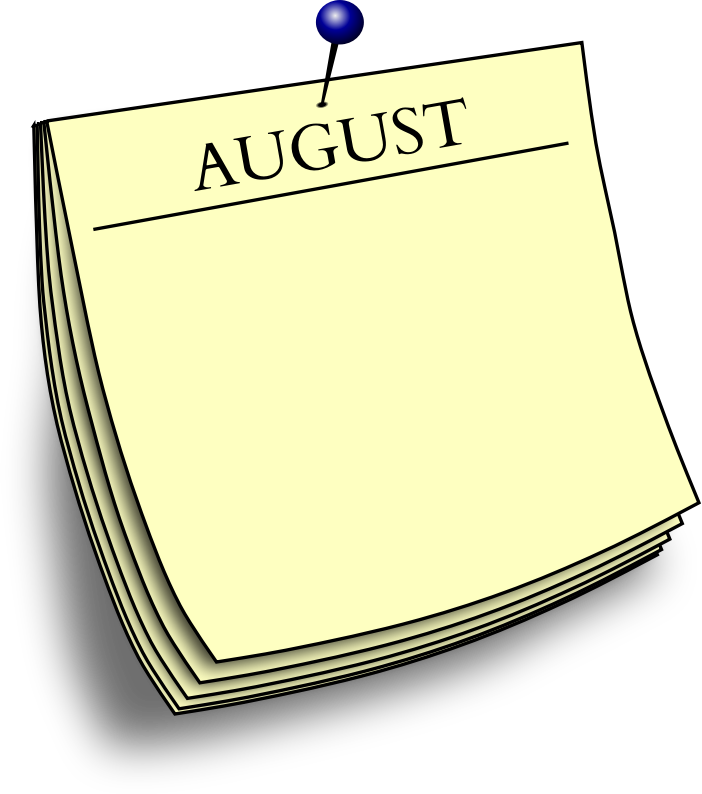There are many options for a month before school. I even have a training plan built to maximize the options provided by one month. However, most of us do not have enough discipline and would delay everything to the last week. What can be achieved in one week to prepare for learning?
Preview the materials
We have several modules regarding prereading. Before actual reading, we review the relevant materials significantly faster than the actual reading speed and try to ask questions. During the review, our eyes capture certain keywords and images. We do not yet know how they are connected, and try to build some hypotheses. It does not matter how wrong we are, as long as we are curious. Then, once we finally encounter the relevant keywords in actual reading, we are kind of delighted to satisfy our curiosity.
The same idea can apply to larger courses. Usually, we have a curriculum and can go through it asking questions and googling, or preread textbooks if applicable. And again, being wrong while guessing is not a bad thing. It is notoriously hard to choose good names for specific course sections and subjects. Some names are click baits, much better than the content within. Other times great content comes with anemic names as the authors struggle to describe or define the text.
Master the prerequisites
To be honest, if there is a large break between courses we are likely to forget the entire discussion. For most of us, this happens even with each season of our favorite TV show. Many series acknowledge this and provide a short recap, so we can follow the events prepared. Moreover, when we watch historical dramas it is best to know a couple of things about the relevant historical period and location.
As we start new courses, the lecturers often assume that we know certain things. This might not be true. The lecture may build upon poor or nonexistent foundations. If we do not understand the first lecture, the difficulties are likely to grow as we progress. Therefore it is wise to be ready, and review the relevant prerequisites before the courses. Just like we do not watch TV recap for more than a couple of minutes, typically reviewing past lectures should be a very short experience. Quite likely all we need is power through our old notebooks at x10 the regular reading speed, pausing only for the things we forgot.
Some parents hire tutors to teach their kids a week before school, as a way to recall the prior materials, and also as a way to prime one’s brain for learning.
Get the relevant equipment
Schools usually require books, notebooks, and writing utensils. Computer classes may require working laptops and a selection of installed programs. The first week of school is usually chaotic, and it is the worst time to procure the required equipment. It is best to have everything stashed from the previous year and buy only the deltas.
Quite often what is needed can be summarized as discipline. During summer, kids tend to work and sleep in strange schedules and need to realign their waking hours to the required routine. Or they hide the equipment they do not use and forget where it is hidden. Reviewing the stuff needed is as important as actually getting that stuff.
Questioning
If you ask a kid what is needed for the next year, the normal answer would be “nothing”. The idea is to go course by course, subject by subject, visualizing the relevant activities and the required equipment, prerequisites, and so on. Quite likely the kid would have no idea about the requirements and have no motivation to preread the course subjects. Nagging and questioning will eventually result in good preparation, simply to stop the nagging.
If we do not have someone to nag us, we can still run this as a visualization, having a very thorough discussion with some imaginary role model.
When nagging becomes unbearable, you can use humor. This is one of my favorite jokes:
“Mother, I do not want to go to school. Kids tease me. Teachers avoid me. And I am bored all the time!”
“Dear, you have to, you are the principal…”
Setting the schedule
This is the best time to schedule the extracurricular activities and courses, including remote learning and videocourses.
Getting from point A to point B just in time can be quite challenging, especially when we factor in extracurricular activities. A child that has regular school, music lessons, and athletic classes in the evening already has a lot of juggling. Add some tutors (for example, for languages), part-time job, and a debate club. The result becomes nightmarish. Especially if one does not have a dedicated car.
Setting a workable schedule is extremely important. To be workable, the schedule should include priorities for activities, transportation, rest, feeding, and time buffers for emergency tasks like homework devoured by a dog.
Nerdy parents usually tend to introduce more activities than the child can manage, resulting in stress and shock. Cool parents often do not introduce enough activities. If a child gets bored, the child is quite likely to find the wrong kind of fun, getting overly involved with the wrong crowd.
Bonus: clear up the bucket list
Just like we have a bucket list for our entire lives, we may have a bucket list for vacation. The relevant bucket list often includes visiting relatives, reading very specific books, and playing some games. Typically it is normal not to finish the entirety of what is planned for the vacation. So, it is quite normal to use the first weeks of actual school to clear up the bucket list, doing things we forgot to do. This is less than ideal. When we start a new chapter in our lives it is important to have no regrets and focus on new challenges, so it makes sense to use the last week of vacation to make peace with our dreams. Some things are important enough to pursue even when not convenient, while other things are simply not important enough.
Do not overwork
Notice that everything I just mentioned is a relatively easy, low-intensity activity. The worst thing to do is overwork before we start something really challenging. We need to preserve our focus and energy for the upcoming events. I do not recommend using the last week of vacation to try to learn a new language or acquire a complex skill like speedreading or mnemonic technique. Proper learning required resources, and we should better ensure that the resources will be available when we need them.
Unfortunately, schools often contribute to this bad habit, by assigning too much homework for the vacation period. Kids are not likely to actually do the homework during the vacation, instead, they stress out just before then have the stress of starting a new year.
If you are an educator, please do not provide kids with complex tasks for summer vacation. And if you are a parent, this is probably the only time I would sanction cheating. Smark kids cheat using ChatGPT. Enough said.
Take a vacation
If you read this article, and nothing in it excites you, you probably deserve a short vacation. You do not need any special preparations. Nature is there and it will welcome you.

Get 4 Free Sample Chapters of the Key To Study Book
Get access to advanced training, and a selection of free apps to train your reading speed and visual memory

